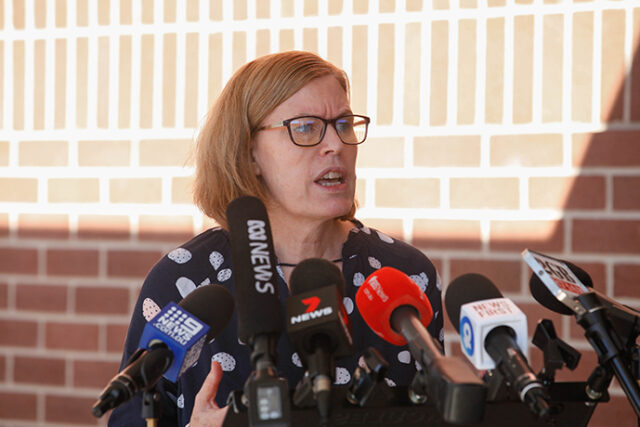NSW Health has revised the COVID-19 reinfection period from 12 weeks down to four weeks effective from this week, as the virus continues to run rampant across the state.
People who have previously had COVID-19 will be required to test for COVID-19 after 28 days since their isolation ended if experiencing symptoms and follow the relevant health advice if they test positive.
People who test positive again will be reported and managed as new cases.
NSW Chief Health Officer Dr Kerry Chant said the reduced reinfection period, which follows the advice from the Australian Health Protection Principal Committee, is due to the latest subvariants of Omicron circulating in the community.
“The Omicron BA.4 and BA.5 subvariants are circulating widely in NSW. They are more able to evade immunity gained from previous infection and vaccination reinfection is more likely and possible just weeks after a prior infection,” Dr Chant said.
“We’re urging people who have recently had COVID-19, even if they left isolation in the past four weeks, not to be complacent. If you develop symptoms again, make sure to test and isolate.”
Dr Chant is also urging members of the community who are now eligible for a COVID-19 booster dose to access it as soon as possible ahead of an expected peak in cases in the coming weeks.
The expansion of the winter booster program means those aged 50 to 64 years are now recommended to receive a second or winter booster dose, which is available to all those aged 30 and over.
“With the rising number of COVID-19 cases in the community driven by a wave of wave of BA.4 and BA.5 infections, it is vital people are up to date with their COVID-19 vaccinations, as this will provide the best protection against severe illness from COVID-19,” Dr Chant said.
Dr Chant said while most cases of COVID-19 are mild, some members of the community are at a risk of severe infection and may be able to access antiviral medications to treat their infection.
“Antivirals work best when taken at the beginning of a COVID infection, so it is really important that if you are at high risk, you plan ahead, speak with a doctor so you understand the treatment options which are available to you if you test positive for COVID-19,” Dr Chant said.

Weekender Newsroom
This post has been published by the team in our newsroom.

